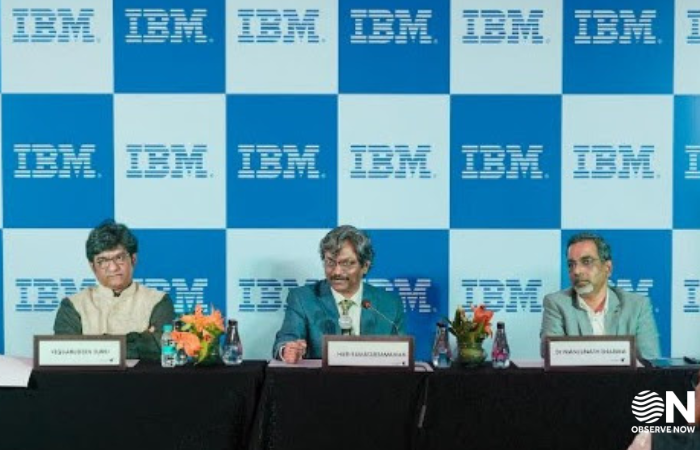IBM Launches Global Entrance Test to Bridge Academia and Industry in India

IBM has unveiled the Global Entrance Test through its Quantum Quotient Decode initiative, marking a significant step in integrating technology-led postgraduate education in India. The move is designed to offer students access to industry-aligned MBA, MCA, and M.Sc Computer Science programs in collaboration with leading Indian universities, with S-VYASA Deemed-to-be University in Bengaluru becoming the first to adopt the model.
Scheduled to take place online on August 17, GET will assess candidates on key parameters including aptitude, logical reasoning, and language proficiency. Those who qualify will be admitted into academic programs that blend traditional university instruction with IBM-developed curriculum, featuring cloud-based labs, immersive AI tools, internships, and real-world projects.
At the heart of the initiative is IBM’s Q²D framework, which aims to prepare students for a digital-first world by combining technical training with mentorship and continuous assessment. The program includes personalized learning journeys guiding students toward employment, entrepreneurial ventures, or research roles. Certificates are co-branded—issued by universities and marked with IBM’s digital badge—to signal readiness for industry.
Hari Rama Subramanian, who leads IBM’s academic partnerships, emphasized that GET focuses on identifying each student’s strengths to enable tailored learning. “IBM is not running the university. We are collaborators ensuring students receive cutting-edge tech skills. The university maintains full academic autonomy,” he said.
By embedding live projects, industry mentors, and English proficiency modules—developed in collaboration with Cambridge University Press & Assessment—the program seeks to enhance employability from day one. Institutions like S-VYASA will host training in AI, cloud computing, cybersecurity, and materials science on their campuses, with full IBM-supported infrastructure.
Observers believe GET has the potential to redefine postgraduate education by creating a standardized, scalable model for industry-academic synergy. Instead of ad hoc collaborations, students admitted through GET benefit from deep integration: hands-on labs, soft skills development, global certifications, and real-world exposure—all before graduation.
As universities express interest in the model, IBM’s Q²D network appears poised for expansion. Future plans may include adding more institutions and programs across emerging technologies. For students, GET promises a future-ready path aligned with corporate needs; for academia, it offers a powerful new avenue to infuse curricula with practical relevance.
In a country striving to bridge the skill gap between traditional education and industry demands, IBM’s GET represents a bold, collaborative experiment. Its success could serve as a template for integrating pioneering curriculum, cloud technologies, and mentorship—empowering India’s next generation of tech professionals and thought leaders.
















